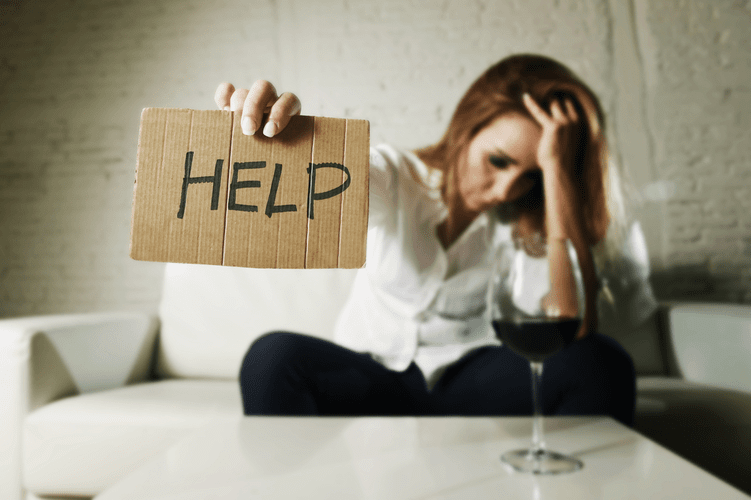” or feeling that your husband drinks too much, it’s essential to approach the situation with care and understanding. Being married to an alcoholic can bring a unique set of challenges to my husband chooses alcohol over me a relationship, impacting not only the individual but also the family as a whole. Unhealthy drinking habits can take a toll on any relationship, primarily marriages, and learning how to deal with alcoholic husband can be challenging. Research has found that drug and alcohol abuse may lead to relationship dissatisfaction, instability, and verbal and physical aggression between you and your partner.
The Essential Yoga Asanas You Should Practice Daily for Optimal Health and Well-being

Offer these options to your loved one and encourage them to take steps towards addressing their problem. Therefore, if your husband is struggling with alcoholism, it’s crucial to prioritize his well-being and seek professional help. Whether or not he needs detoxification (detox) depends on the severity of his alcohol dependence.
How to find a drug and alcohol rehabilitation center?
It may appear that the individual has chosen alcohol or drugs over family, but science and physiology prove otherwise. It’s difficult to understand why your loved one chooses to isolate rather than get support from the family members who only want the best for them. And it’s tempting to want to stop trying to help when the individual seems to choose drugs over family. If a family member is struggling with addiction to a substance, it can seem like they are choosing drugs or alcohol over their family. Understandably, you may feel frustrated, confused, and angry.
How to overcome jealousy when your partner chooses his friends
It is important to remember that you are not alone in your struggle and that there is help available. If you recognize these warning signs in your loved one, it is important to encourage them to seek professional help. Additionally, medical professionals can provide proper diagnoses and treatment options, including detox and rehabilitation programs. Many people require detox to help manage withdrawal from alcohol and other drugs. There are several factors that we take into consideration to determine if you will need detox before addiction treatment. Our admissions professionals work with each person to obtain a thorough history of substance use and other medical conditions to help make the appropriate recommendations for care.
- Enabling behaviours, such as making excuses for your loved one or bailing them out of jail for a DUI, can minimise the impact of their drinking on your family.
- These helplines are often confidential and provide a safe space for individuals to discuss their challenges and receive guidance.
- All enabling does is give you is a false sense of control.
- It can also impair bone fracture repair and reduce bone density, increasing the risk of falls and other injuries.
- Rehab professionals can help you determine if you have insurance coverage for addiction treatment, and what options are best for you.
- This is where it important to understand that no one can save an alcoholic.
- By expressing your feelings, seeking mutual understanding, and prioritizing self-care, you can address the issue constructively and strengthen the bond between you and your partner.
- It’s normal to feel anxiety before confronting your husband about his alcohol use.
It fundamentally alters the brain’s reward system, creating a powerful craving that overrides rational thought and emotional connection. People tend to gravitate towards people and things that make them the happiest. When your husband chooses to spend more time with his friends, working on his car, or doing some other activity than spending time with you, it might signal that he is unhappy with you for some reason. Or he may not be talking to you about it because he doesn’t want to deal with the argument that will result from it. He has never allowed his drinking to affect him at work, and he has always held down a job.
Dealing with a partner’s alcohol addiction can be emotionally painful, stressful, and overwhelming. It can be difficult to understand why they choose alcohol over you, but it’s important to recognise that alcoholism is an illness that affects the body and brain. While it’s a personal choice to stay or leave, it’s crucial to prioritise your own well-being and seek support. You can encourage your partner to seek treatment and support their recovery, but ultimately, they must decide to stop drinking https://kono.kinarakinari.com/how-to-write-an-impact-letter-fhe-health/ and take responsibility for their actions.
Why People Choose Drugs and Alcohol Over Family
I knew I would probably not be able to keep the alcohol down, I would be sick, I would sweat and shake and feel deeply ashamed. I knew no sane person would put themselves through this, yet here I was doing it — again! I swore once more, that if I just got out of this I would never drink again, well not as much anyway. Some of you will probably have no sympathy for my plight and will say it was all self-inflicted.
What did you learn about relationships when you were growing up? You need to raise your relationship bar here urgently upwards. I can’t live with an alcoholic, and he won’t get help. I feel heartbroken, and like all the things I expected in our future have been stolen from me….we have been so happy, I don’t want to lose my best friend/relationship.


They have valid, chemical, and mental reasons to choose the substance. Without drug and alcohol treatment, they simply are not capable of doing anything else. Start by letting your loved one know how much you care about them and how their drinking habits worry you. Share your concerns about the impact their drinking is having on their health, your relationship, and the family as a whole. Try to remain neutral and avoid judging or shaming their behaviour. Remember, your goal is to help them see the situation more clearly and encourage them to seek help.
Remember, recovery is a process, and it may involve setbacks and challenges along the way. By offering these steps and supporting your loved one through their journey, you can help them address their alcohol addiction and work towards a healthier future. If you feel overwhelmed or prefer not to confront your loved one alone, consider staging a family intervention. Ensure that everyone involved approaches the situation from a Halfway house place of care and concern rather than anger or accusation.

